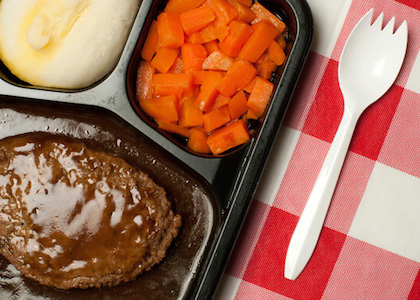
5 Chemicals That Turn Our Food Toxic (and how to avoid them!)
By Stacy Kennedy, MPH, RD, CSO, LDN; Reboot Nutritionist
When my family lived in Boston we became close friends with our neighbors who were doing their post-doc at Harvard and our kids loved to play together. The mom is from Istanbul, Turkey and the dad from Denmark although they now live in Sweden. We loved to talk about nutrition and of course, food! One day my friend said, “I realize that what Americans call food, we call junk food and what you call junk food, we call chemicals.” Five years later this sentence has really stuck with me…she’s right!
You may have seen this article circulating email and Facebook recently, highlighting the “8 Foods We Eat in the U.S. That Are Banned in Other Countries.” Scary stuff!
Most of these chemicals were created in the lab to improve shelf life, reduce mass food production costs or enhance visual appearance of colorful additives; certainly not for health purposes! I wanted to take this opportunity to take a deeper look at these and break down a few other chemicals of concern. For more information check out The Top 5 Foods You Should Never Eat.
There is some pretty toxic stuff circulating in our food supply. Here are the top 5 to avoid:
1.) Bisphenol-A, aka “BPA.”
This estrogen-like man made chemical is pervasive in canned foods. BPA is linked to a wide array of health concerns like Reproductive problems, cancer risk, metabolic disorders like obesity, Type 2 diabetes and insulin resistance, heart disease and neurobehavioral effects like ADHD. BPA is particularly risky in canned tomatoes because the acidity of the tomato can leech even more of this toxin in to the food.
What to do?
– Plan ahead to cook from scratch more often.
– Make big batches of fresh tomato sauce and freeze in glass containers.
– Make beans from dried beans and store for later use.
– Choose frozen fruits and veggies when fresh is not available or in season.
– Look for tomato and other packaged products in glass jars or tetra-pak boxes.
– Don’t heat or freeze plastic containers (that includes leaving them in your car overnight!).
2.) Bromated Vegetable Oil, aka “BVO.”
This chemical enhances the bright colors in many bottled beverages like soda, sports drinks and citrus flavored drinks. BVO has been linked to increasing cholesterol levels, and can cause damage to vital organs including the liver and kidneys.
What to do?
– Make your own flavored water, sports drink or fresh citrus juice!
– Reach for natural coconut water over traditional, brightly colored sports drinks.
3.) Benzoate Preservatives, aka “BHT, BHA, TBHQ.”
These chemicals are used to help keep fats in foods from going rancid. They’ve been linked with serious concerns like increasing cancer risk, disrupting estrogen balance, urticaria, asthma and hyperactivity. Read your packages carefully – it’s often lurking in cereal, nut mixes, gum, butter, meat, dehydrated potatoes.
What to do?
– Dehydrate your own veggies and fruits! It’s fun, easy and super tasty without all the chemicals.
– Look for natural gum flavored with Stevia.
– Mix your own nuts – get a variety of raw nuts you enjoy and roast them with some spices or just mix them together raw.
4.) Perfluorooctanoic acid, aka “PFOA.”
The paper and lining of microwave popcorn bags contain PFOAs. At high heats, like those created in the microwave, PFOAs can vaporize and spread into the popcorn. PFOAs can also be inhaled through the steam given off if the bag of microwave popcorn is opened shortly after heating. PFOA has been linked to thyroid disease in humans and cancers in animals. The food industry is mainly complying with the EPA’s 2015 goal of eradicating this chemical.
What to do?
– Air pop popcorn yourself. It’s fast, easy, tasty and a healthy whole grain (look for non GMO kernels). If you don’t have an air popper you can use kernels in a paper bag in the microwave. Simply add about 1/2 cup of popcorn to a brown paper bag, twist the top then microwave listening carefully for when it’s finished popping.
– Snack on fresh fruits and veggies.
5.) Azodicarbonamide
A bleaching agent used in packaged, processed foods like frozen dinners, pasta and flour mixes in baked goods, this toxic chemical has been linked to cancer risk and asthma.
What to do?
– Read labels carefully.
– Batch cook your favorite soup or healthy meal and freeze for your own, healthy, “frozen dinner” on busy weeknights.